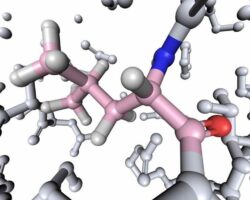
- Introduction to Peptides in Therapeutics
- Historical Background of Peptide-based Therapeutics
- Mechanisms of Action for Peptides in Therapeutics
- Current Applications of Peptides in Therapeutics
- 4.1 Peptides in Cancer Treatment
- 4.2 Peptides in Diabetes Management
- 4.3 Peptides in Cardiovascular Health
- 4.4 Peptides in Neurological Disorders
- 4.5 Peptides in Dermatology
- Challenges and Limitations of Peptide-based Therapeutics
- Future Potential of Peptides in Therapeutics
- 6.1 Emerging Peptide Therapies
- 6.2 Advancements in Peptide Delivery Systems
- 6.3 Peptide Engineering and Design
- 6.4 Peptides in Personalized Medicine
- Conclusion
Introduction to Peptides in Therapeutics
In recent years, there has been a growing interest in the use of in therapeutics. Peptides, which are short chains of amino acids, have shown immense potential in various medical applications. From their historical background to current applications and future potentials, this blog delves into the world of peptides in therapeutics.
Historical Background of Peptide-based Therapeutics
Since ancient times, natural peptides derived from organisms have been used for their therapeutic properties. Ancient civilizations, such as the Egyptians and Greeks, utilized peptide-rich substances like snake venom and plant extracts for medicinal purposes. However, it wasn’t until the advent of modern medicine that the true potential of peptides began to be explored.
Mechanisms of Action for Peptides in Therapeutics
Peptides exert their therapeutic effects through various mechanisms. One prominent mechanism is their ability to interact with specific receptors on cell surfaces, triggering a cascade of cellular responses. Additionally, peptides can modulate enzymatic activity, regulate gene expression, and even exhibit antimicrobial properties. These versatile mechanisms make peptides an attractive option for targeted therapies.
Current Applications of Peptides in Therapeutics
Peptides have found applications in a wide range of therapeutic areas, revolutionizing the treatment landscape. Let’s explore some of the key areas where peptides are making a significant impact:
4.1 Peptides in Cancer Treatment
Cancer is a global health challenge, and peptides have emerged as powerful tools in the fight against this devastating disease. Peptide-based therapies, such as peptide vaccines and targeted peptide-drug conjugates, are being developed to specifically target cancer cells while minimizing damage to healthy tissues.
4.2 Peptides in Diabetes Management
Diabetes is a chronic metabolic disorder affecting millions worldwide. Peptides, such as glucagon-like peptide-1 (GLP-1) analogs, have shown promise in managing blood sugar levels and improving insulin sensitivity. These peptides mimic the action of natural hormones to regulate glucose metabolism.
4.3 Peptides in Cardiovascular Health
Cardiovascular diseases remain a leading cause of morbidity and mortality globally. Peptides, like atrial natriuretic peptide (ANP) and B-type natriuretic peptide (BNP), have been utilized for their vasodilatory and cardioprotective effects. These peptides help regulate blood pressure, fluid balance, and cardiac function.
4.4 Peptides in Neurological Disorders
Neurological disorders, such as Alzheimer’s disease and Parkinson’s disease, pose significant challenges in healthcare. Peptides, including amyloid-beta-targeting peptides and neuropeptide analogs, are being investigated for their potential to inhibit disease progression and alleviate symptoms.
4.5 Peptides in Dermatology
Dermatological conditions like psoriasis, acne, and wound healing disorders can greatly impact an individual’s quality of life. Peptides, such as antimicrobial peptides and growth factor-mimicking peptides, are being studied for their ability to promote skin regeneration, wound healing, and combat microbial infections.
Challenges and Limitations of Peptide-based Therapeutics
While peptides hold immense promise, there are several challenges and limitations that need to be addressed. Stability, poor oral bioavailability, and high manufacturing costs are some of the hurdles faced in developing peptide-based therapeutics. However, ongoing research and advancements are paving the way for overcoming these obstacles.
Future Potential of Peptides in Therapeutics
Looking ahead, the future of peptides in therapeutics appears exceptionally promising. Several exciting avenues are being explored to enhance the therapeutic potential of peptides:
6.1 Emerging Peptide Therapies
Emerging peptide therapies are being developed to target specific diseases and biological processes. These include novel peptide-based drugs, peptide vaccines, and peptide-guided drug delivery systems that offer enhanced efficacy and reduced side effects.
6.2 Advancements in Peptide Delivery Systems
Efficient delivery of peptides to the target site remains a challenge. However, advancements in peptide delivery systems, such as nanotechnology-based carriers, liposomes, and microneedles, are improving the bioavailability and stability of therapeutic peptides.
6.3 Peptide Engineering and Design
Peptide engineering and design techniques are enabling the creation of peptides with enhanced properties, such as increased stability, improved target specificity, and prolonged half-life. These advancements open up new possibilities for tailored peptide therapeutics.
6.4 Peptides in Personalized Medicine
Personalized medicine aims to provide tailored treatments based on an individual’s unique genetic makeup and disease profile. Peptides hold great potential in this field, as they can be customized to interact with specific molecular targets, offering personalized therapeutic options.
Conclusion
In conclusion, peptides have emerged as a valuable tool in therapeutics, with current applications spanning diverse areas such as cancer treatment, diabetes management, cardiovascular health, neurological disorders, and dermatology. While challenges exist, ongoing research and advancements in peptide engineering, delivery systems, and personalized medicine are paving the way for an exciting future in peptide-based therapeutics.




